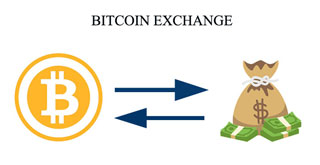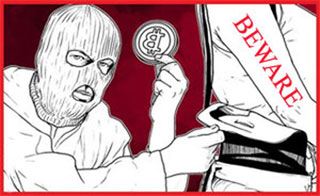Bitcoin Scams
As Bitcoin becomes increasingly popular, so do associated scams. Dive into the common deceptive strategies fraudsters employ and arm yourself with knowledge to safeguard your digital investments.
BITCOIN SCAM
A Bitcoin scam is a deceptive operation, leveraging the decentralized nature of cryptocurrencies. Enabled by Blockchain technology, Bitcoin operates without central oversight, allowing peer-to-peer transactions. Although it offers an efficient way of transferring value, its decentralized nature and relative novelty make it an attractive target for scam operations.
COMMON TYPES OF BITCOIN SCAMS
-
The Deceptive Ploy of Savings & Trust:
The "Bitcoin Savings and Trust" stands out as a significant example of a Ponzi scheme in the cryptocurrency world. It began as a high-return investment model, with investors promised exceptional returns. In the end, the scam amassed more than 2,65,000 bitcoins. It eventually crumbled in 2012, leading to the conviction and penalization of its mastermind, Trendon Shavers.
-
The Silk Road Email Blunder:
The infamous Silk Road, an online black market, inadvertently led to a scam when the government decided to auction the confiscated Bitcoins. A list of potential bidders was accidentally revealed, making them prime targets for scam emails. These fake emails, pretending to be from official sources, extracted sensitive information, leading to substantial losses for the victims.
-
The Illusion of Bitcoin Gold:
Bitcoin gold, a proposed new cryptocurrency model, was used as bait by savvy scammers who launched a website offering Bitcoin gold wallet creation. Victims were asked to submit their private keys, leading to thefts that amounted to more than $3 million across various cryptocurrencies.
PROTECTIVE MEASURES AGAINST BITCOIN SCAMS
-
Beware of Fake Bitcoin Exchanges:
Always ensure a website uses HTTPS encryption before conducting any transactions. Be wary of exchanges that seem too good to be true or those that have recently popped up with little online presence.
-
Guard Against Phony Wallets:
Fake Bitcoin wallets are often designed to steal from users. Before using a wallet, check for reviews and previous users' experiences. Be especially cautious of wallets that have been recently launched or have suspicious-looking URLs.
-
Stay Alert to Phishing Attempts:
Phishers trick individuals into thinking they're interacting with a trusted entity. Avoid clicking on suspicious links or downloading attachments from unknown sources. Always verify the URL and email sender.
-
Avoid Promising Investment Schemes:
Ponzi or pyramid schemes often entice investors with the promise of high returns. Always be skeptical of investment opportunities that guarantee significant profits in a short span.
-
Scrutinize Cloud Mining Contracts:
While there are legitimate cloud mining operations, many are just elaborate scams. Always conduct thorough research and be cautious of companies offering contracts with unrealistic returns.
FINAL THOUGHTS
As the popularity of Bitcoin rises, so does the sophistication of scams surrounding it. However, by being informed and vigilant, one can avoid falling prey to these malicious actors. Always prioritize safety and remember that if something seems too good to be true, it probably is.
NOTABLE BITCOIN SCAMS AROUND THE GLOBE
-
South Korea's Bitcoin Pyramid Scheme Unravelled:
South Korean authorities brought down a massive Bitcoin pyramid scheme, with victims losing an estimated $24 million. The scheme's operators cunningly promised high returns to unsuspecting investors.
-
Japan Experiences a Bitcoin Bait-and-Switch:
Scammers in Japan fooled a Bitcoin seller with fake currency, costing him a significant amount. The sellers were presented with an illusion of a genuine transaction, only to later discover the deceit.
-
India Witnesses a Bitcoin Breach:
In India, a woman fell victim to a sophisticated scam, leading to a loss of $55,000 in Bitcoin. The culprits cleverly manipulated her, gaining unauthorized access to her Bitcoin wallet.
-
Austrian Investors Deceived by Empty Promises:
Austrian investors were lured by a Bitcoin scheme, known as "Optioment," with promises of high returns. The scam left many individuals with significant financial losses, highlighting the dangers of investing without proper due diligence.








